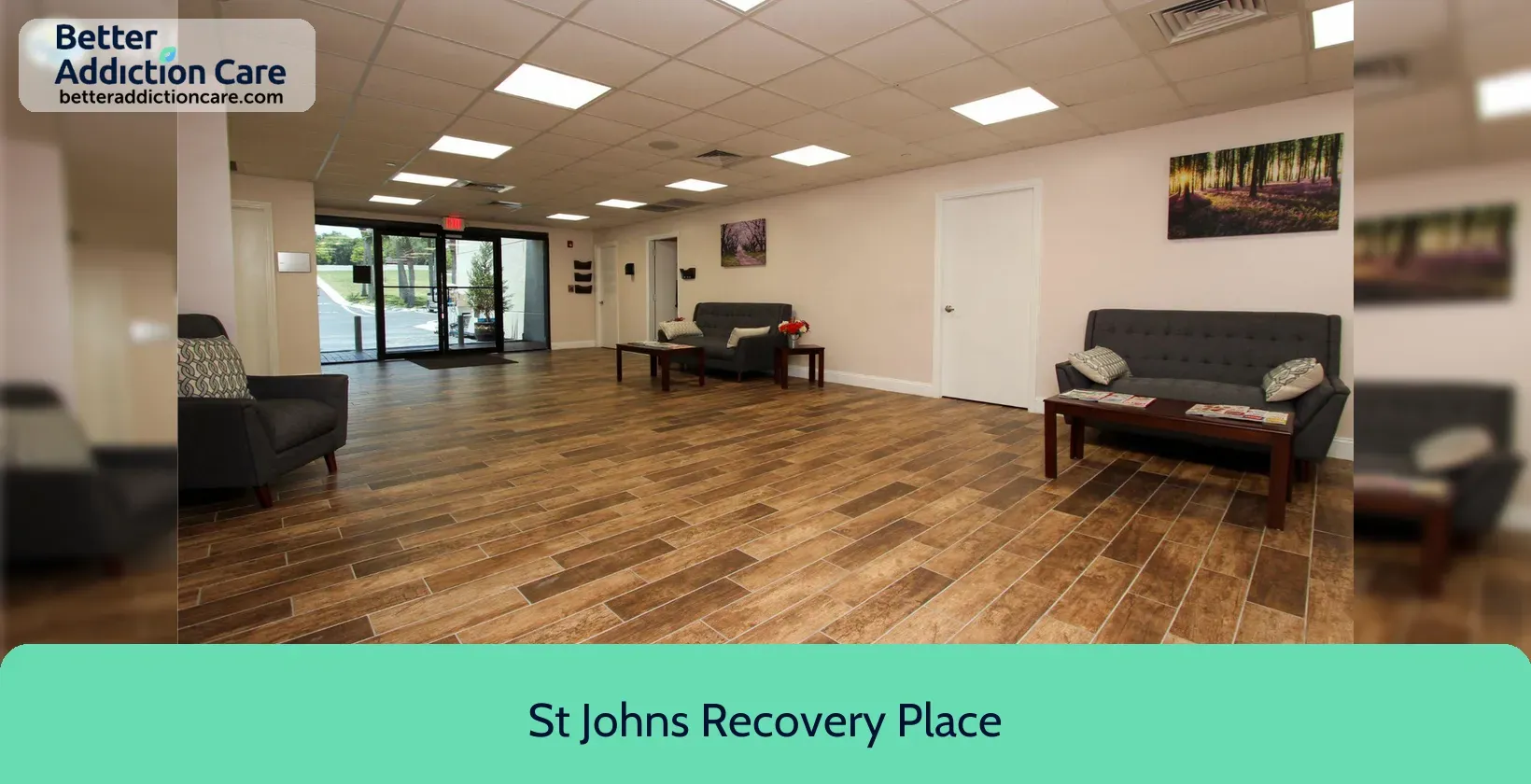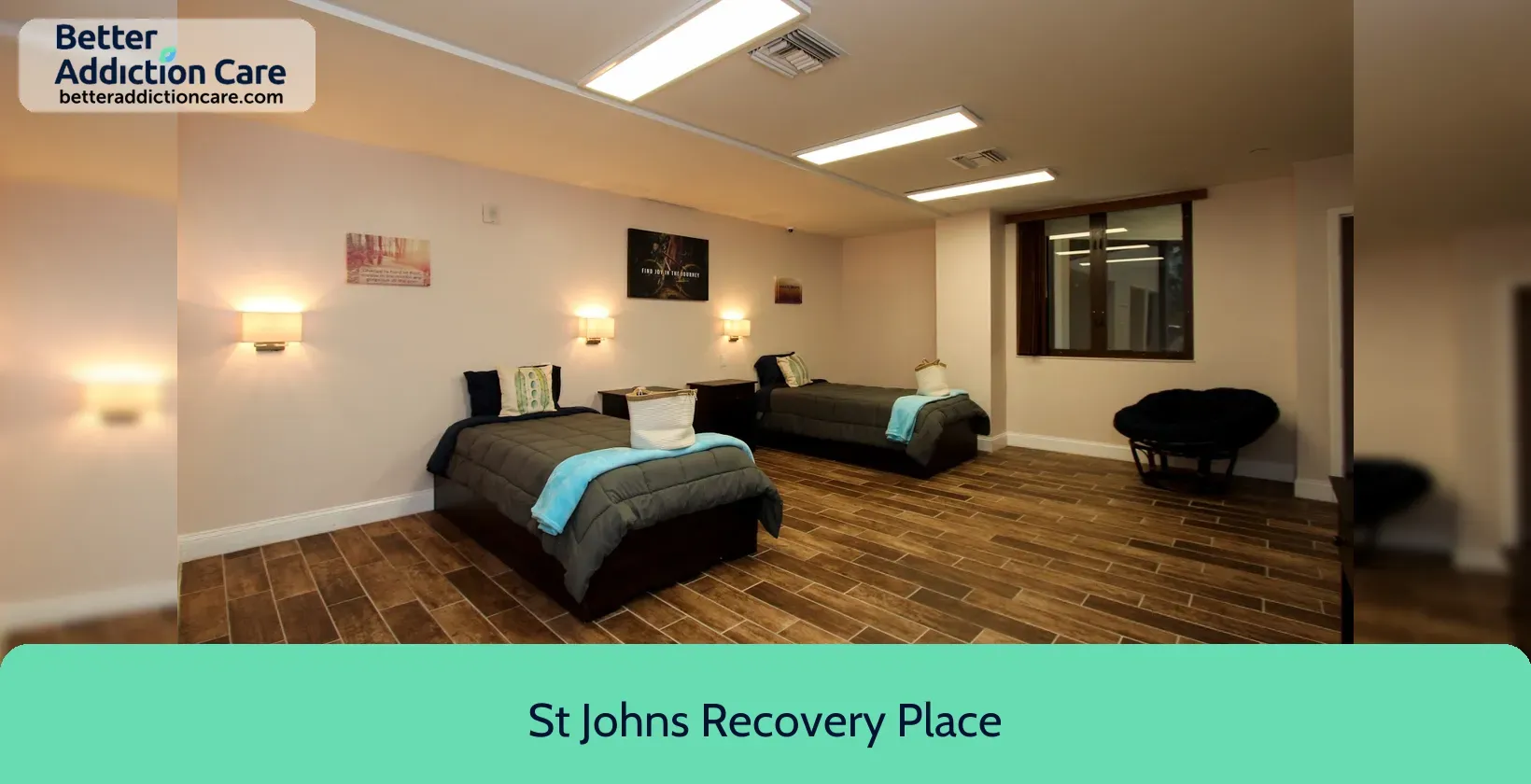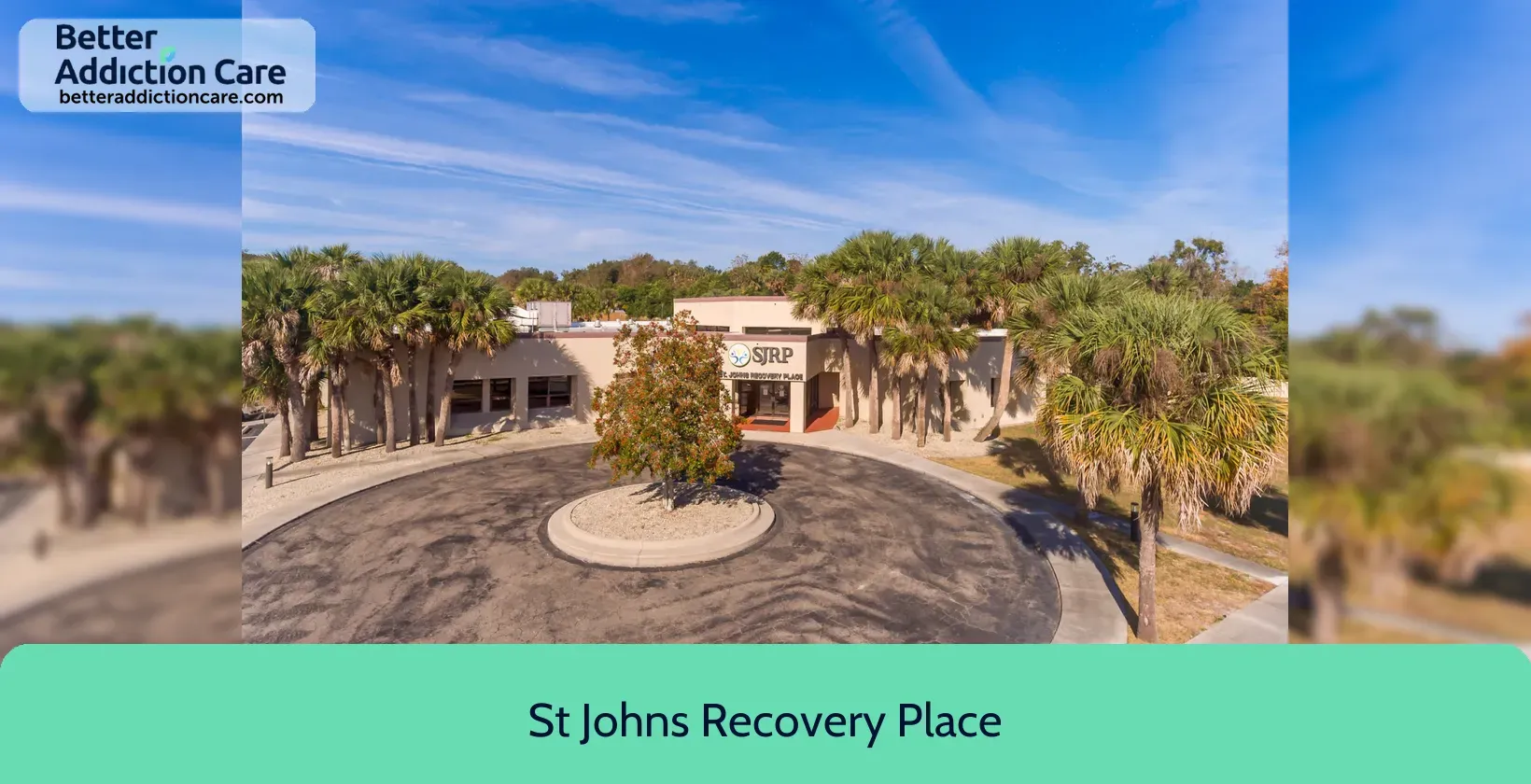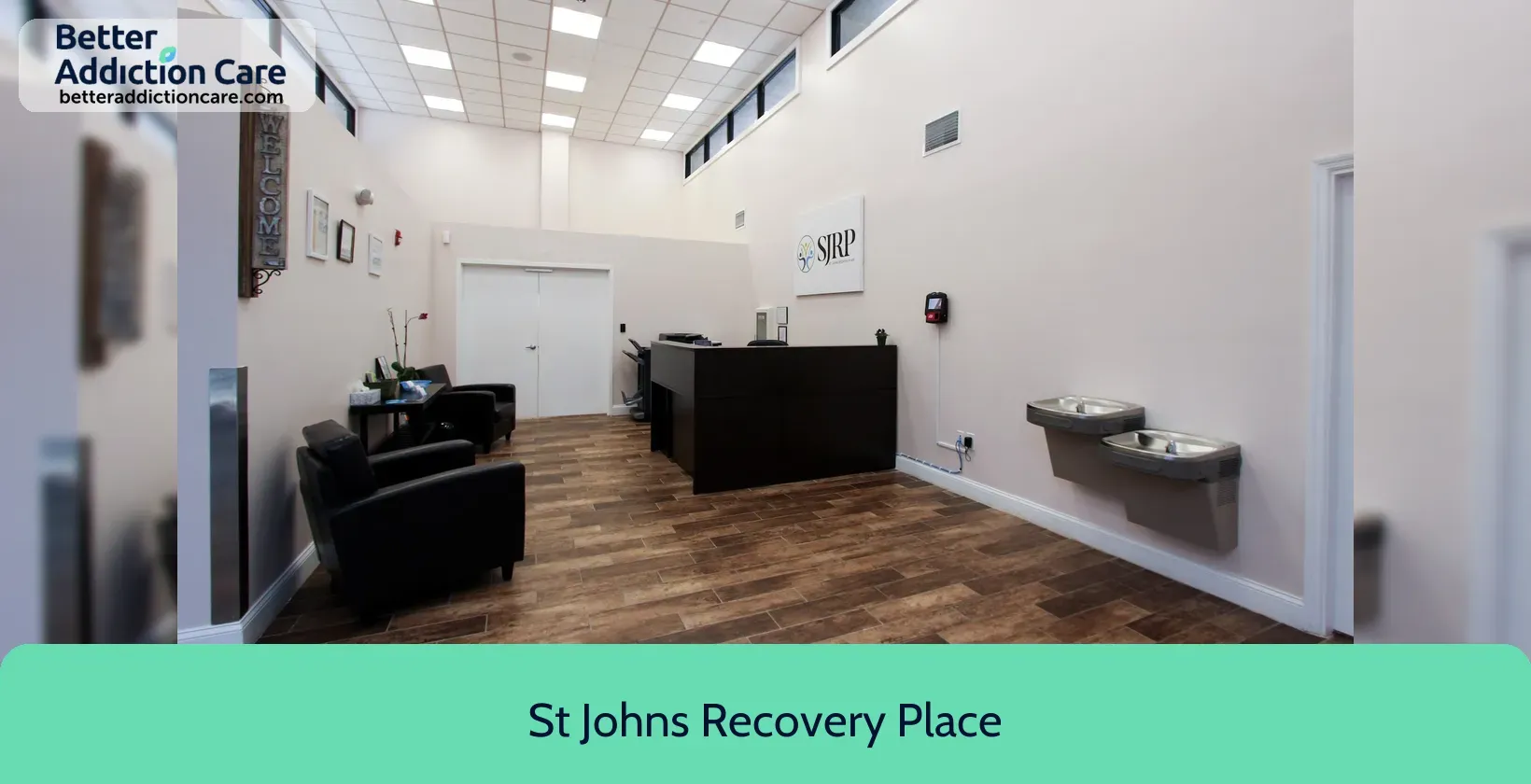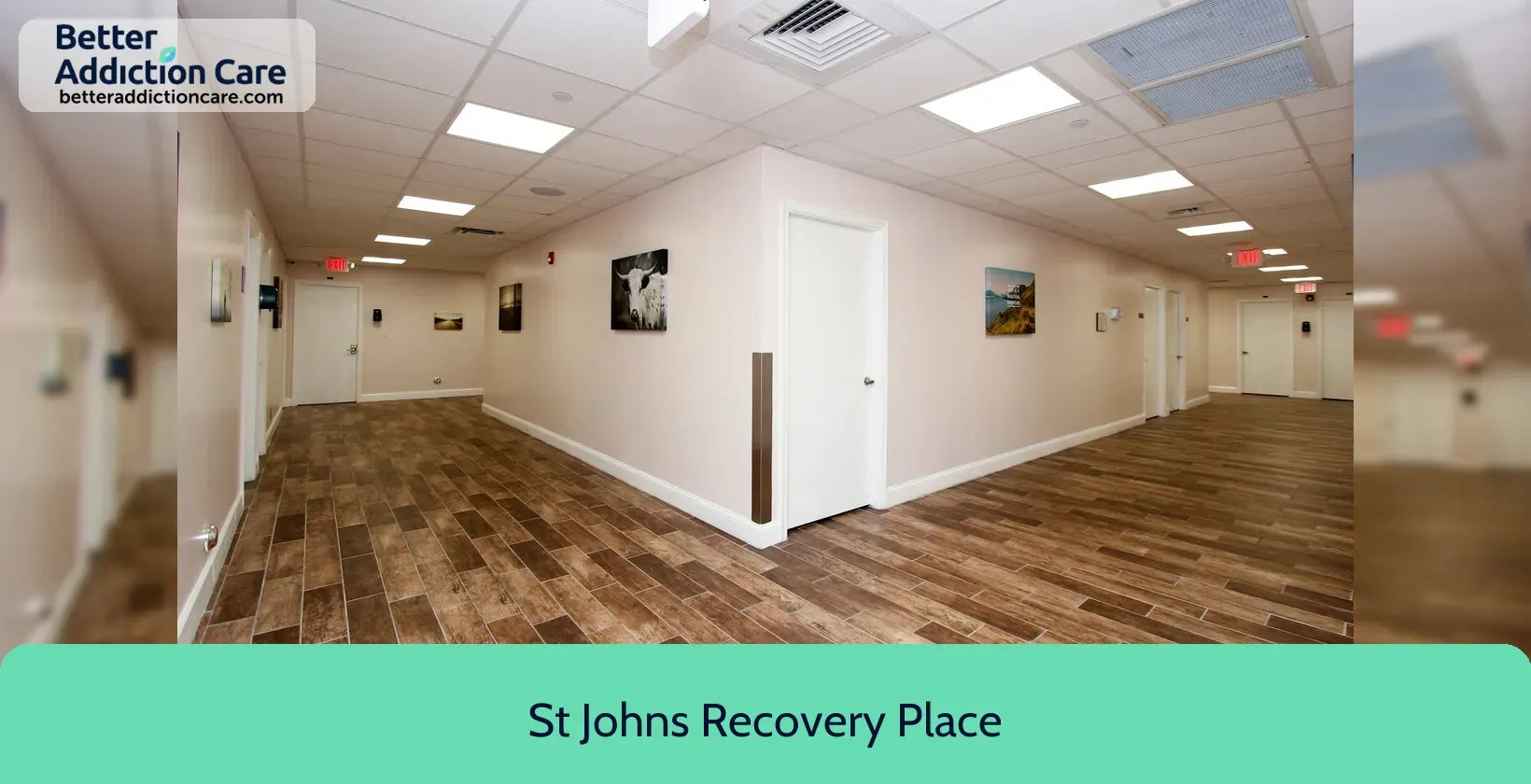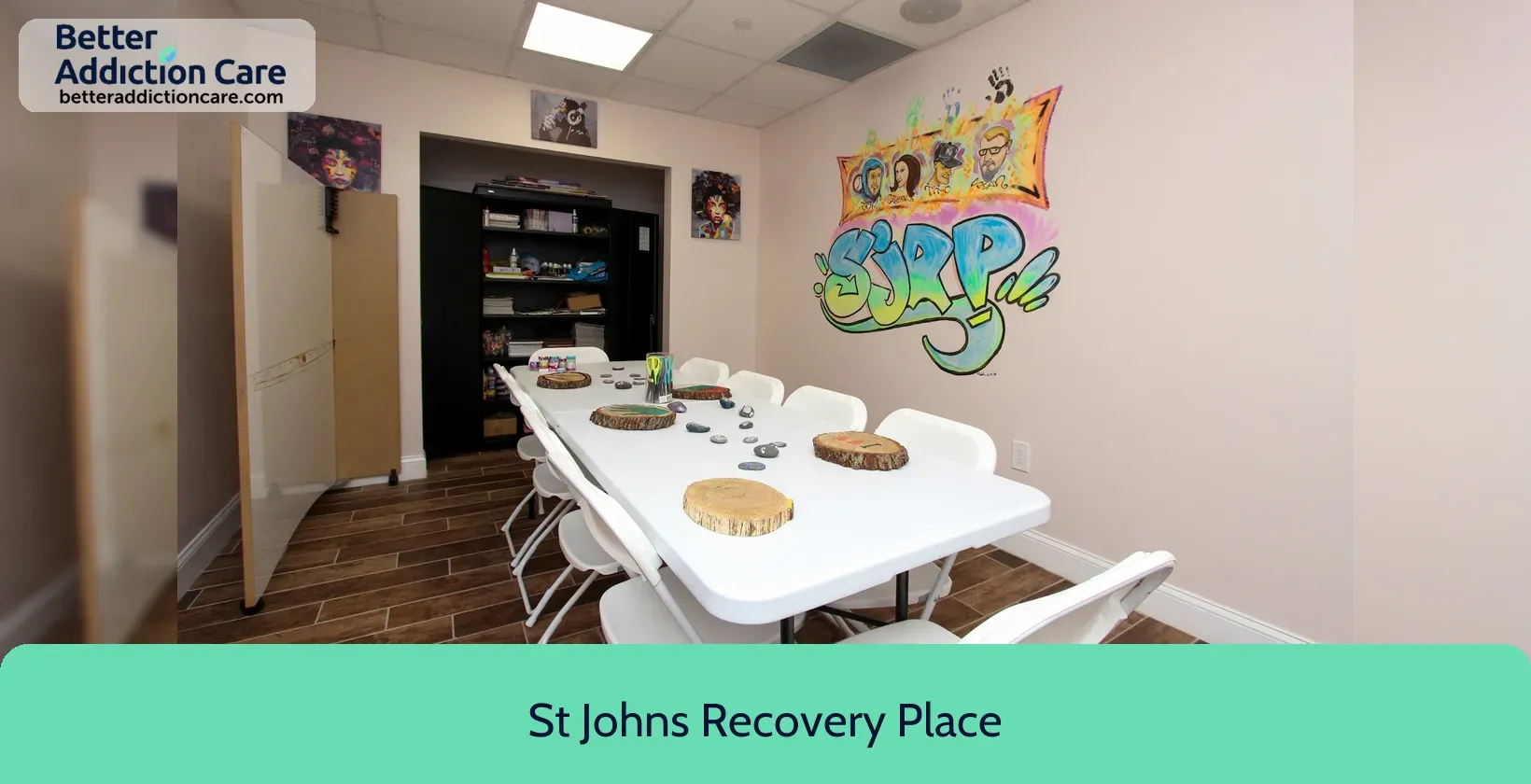St Johns Recovery Place
Overview
Situated in Crescent City, Florida, St. Johns Recovery Place (SJRP) covers an area of 8.4 acres and provides a tranquil, therapeutic atmosphere for the treatment of substance use disorders and co-occurring mental health conditions in adults aged 18 and older. The facility prioritizes an individualized treatment approach, assuring that each client receives care that is customized to their individual requirements and recovery objectives.
SJRP provides a diverse selection of comprehensive treatment programs, such as outpatient programs, residential treatment, and medical detox services. The Partial Hospitalization Program (PHP) and the Intensive Outpatient Program (IOP) are among the outpatient services that offer varying levels of treatment based on the individual's personal circumstances and recovery stage. SJRP also provides sober living residences, aftercare services, support groups, and an alumni program to maintain connections and promote ongoing sobriety for those in need of long-term support.
The facility implements a wide range of evidence-based treatment modalities that are intended to address the psychological, emotional, and physical components of recovery. These therapies consist of cognitive behavioral therapy (CBT), equine therapy, neurointegration therapy, relapse prevention therapy, and animal-assisted therapy. A primary counselor is assigned to each client, and their role is to provide them with guidance throughout the recovery process. Furthermore, transportation is offered to and from the facility to guarantee that clients have easy access to care.
The Joint Commission's accreditation of SJRP is indicative of its dedication to providing high-quality healthcare services that adhere to stringent clinical and operational standards, as well as its dedication to client safety and high standards of care.
St Johns Recovery Place at a Glance
Payment Options
- Cash or self-payment
- Medicaid
- Private health insurance
- Federal military insurance (e.g., TRICARE)
- Self-pay options
Assessments
- Comprehensive substance use assessment
- Screening for tobacco use
- Comprehensive mental health assessment
- Outreach to persons in the community
- Screening for mental disorders
Age Groups
- Adults
- Seniors or older adults
- Young adults
Ancillary Services
- Case management service
- Integrated primary care services
- Specially designed program for DUI/DWI clients
- Early intervention for HIV
- Mental health services
Highlights About St Johns Recovery Place
8.13/10
With an overall rating of 8.13/10, this facility has following balanced range of services. Alcohol Rehabilitation: 8.00/10, Drug Rehab and Detox: 8.77/10, Insurance and Payments: 7.20/10, Treatment Options: 8.55/10.-
Drug Rehab and Detox 8.77
-
Treatment Options 8.55
-
Alcohol Rehabilitation 8.00
-
Insurance and Payments 7.20
Accreditations
The Joint Commission:

The Joint Commission accreditation for addiction and behavioral health is a prestigious recognition signifying a facility's commitment to delivering high-quality care and safety for individuals dealing with substance abuse and mental health issues. It involves rigorous evaluations and assessments, ensuring patients receive evidence-based treatment and exceptional care. This accreditation demonstrates a facility's dedication to continuous improvement and ethical practices, building trust among patients and healthcare professionals seeking top-tier addiction and behavioral health services.
State department of health:

State Licenses, issued by government agencies, authorize rehabilitation organizations to legally operate within designated geographical areas. The specific licenses required for operation are typically determined by both the nature of the rehabilitation program provided by the facility and its physical location.
Commission on Accreditation of Rehabilitation Facilities (CARF):

Established in 1966, the non-profit organization known as the Commission on Accreditation of Rehabilitation Facilities (CARF) has a dedicated focus on accrediting rehabilitation organizations. CARF's primary mission is to assist service providers, particularly rehabilitation facilities, in upholding and promoting the highest standards of care.
National Committee for Quality Assurance (NCQA):
NCQA accreditation is a recognition and evaluation process for healthcare organizations, given by the National Committee for Quality Assurance. It measures the quality and performance of healthcare providers, insurance plans, and managed care organizations in providing quality care to their patients. The NCQA accreditation is widely recognized as a benchmark for quality in healthcare and helps consumers make informed decisions about their healthcare options.
Treatment At St Johns Recovery Place
Treatment Conditions
- Alcoholism
- Substance use treatment
- Co-occurring Disorders
- Mental health treatment
Care Levels
- Hospital inpatient treatment
- Hospital inpatient/24-hour hospital inpatient
- Short-term residential
- Residential detoxification
- Hospital inpatient detoxification
Treatment Modalities
- Group counseling
- Equine Therapy
- Cognitive behavioral therapy
- Telemedicine/telehealth therapy
- Substance use disorder counseling
Ancillary Services
Additional Services
- Pharmacotherapies administered during treatment
- Mentoring/peer support
- Breathalyzer or blood alcohol testing
Special Programs
- Clients with co-occurring mental and substance use disorders
- Veterans
- Active duty military
- Members of military families
- Criminal justice (other than DUI/DWI)/Forensic clients
Get Help Now
Common Questions About St Johns Recovery Place
Contact Information
DISCLAIMER: The facility name, logo and brand are the property and registered trademarks of St Johns Recovery Place, and are being used for identification and informational purposes only. Use of these names, logos and brands shall not imply endorsement. BetterAddictionCare.com is not affiliated with or sponsored by St Johns Recovery Place.
